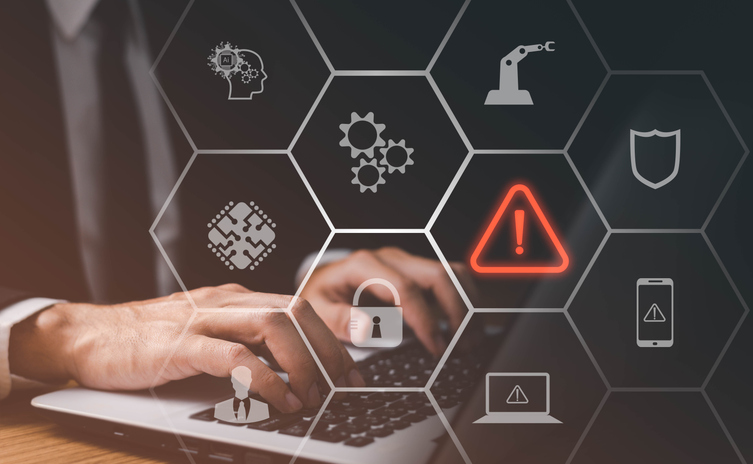3 min read
Automating Security: Harnessing SOA and Automation in Cloud Security
In the swiftly evolving landscape of cyber security, keeping ahead of threats is a constant challenge for organizations worldwide. With the...
3 min read
 The Amazing Team at Force One
:
Jul 24, 2024 9:30:00 PM
The Amazing Team at Force One
:
Jul 24, 2024 9:30:00 PM
The Importance of Information Security in Work-from-Home Environments in the USA
Introduction:
In the wake of the COVID-19 pandemic, the work landscape has shifted dramatically as companies worldwide adopt remote work policies. While this flexibility brings numerous benefits, it also exposes organizations and their employees to numerous cybersecurity risks. This article aims to shed light on the relevance and crucial aspects of information security in work-from-home environments in the USA, emphasizing the importance of organizations and individuals taking proactive measures to protect sensitive data.
Keywords: information security work from home, work-from-home cybersecurity, cybersecurity risks, remote work policies, data protection, cybersecurity strategies
Importance of Information Security in Work-from-Home Environments:
1. Heightened Cybersecurity Risks:
The prevalence of remote work introduces unprecedented cybersecurity risks within organizations. Employees working from home are susceptible to phishing attacks, ransomware, insecure Wi-Fi networks, and compromised personal devices. Cybercriminals exploit the vulnerabilities associated with remote access to gain unauthorized access to sensitive data and systems.
2. Protecting Sensitive Data:
With remote work, employees frequently access, store, and share confidential data from their homes. This makes it essential for organizations to establish robust security measures to protect data both in transit and at rest. Implementing encryption protocols, multifactor authentication, and secure file-sharing platforms help safeguard sensitive information against unauthorized access and data breaches.
3. Employee Education and Awareness:
In remote work environments, employees become the first line of defense against cyber threats. Organizations must prioritize comprehensive cybersecurity training programs to educate employees on identifying potential risks and maintaining best practices for secure remote work. Regular updates on emerging threats and phishing drills can equip employees with the knowledge necessary to mitigate potential attacks.
4. Secure Remote Access:
Organizations should leverage VPN (Virtual Private Network) technologies to establish secure connections between employees and company networks. VPNs create an encrypted tunnel that shields data transmissions from prying eyes, ensuring that sensitive information remains protected while being transmitted over the internet.
5. Endpoint Security:
Securing remote devices, including laptops, smartphones, and tablets, is pivotal to information security in work-from-home environments. Employers can enforce policies that require regular security updates, strong passwords, and antimalware software installation. Endpoint security measures help reduce vulnerabilities to cyber threats and protect organizational data from unauthorized access.
6. Network Security:
Even in remote work settings, organizations must maintain stringent network security measures. Regular penetration testing to identify vulnerabilities, configuring firewalls, and monitoring network traffic are vital strategies in safeguarding company infrastructure. Continuous monitoring helps detect and respond to potential attacks, ensuring a higher level of data protection.
7. Incident Response and Disaster Recovery Planning:
Effective incident response protocols and disaster recovery plans are crucial in minimizing downtime and data loss due to cyberattacks. Organizations must establish clear procedures for reporting incidents, conducting investigations, and implementing swift countermeasures. Additionally, efficient backups and recovery mechanisms are essential to mitigate the impact of any potential security breaches.
Conclusion:
Information security in work-from-home environments is of utmost importance in today's remote work landscape. Organizations must prioritize comprehensive measures to protect sensitive data, educate employees, establish secure remote access, implement endpoint and network security, and develop robust incident response and disaster recovery plans. By adopting proactive information security strategies, companies can mitigate the risks associated with remote work in the USA.
Keywords: information security work from home, work-from-home cybersecurity, cybersecurity risks, remote work policies, data protection, cybersecurity strategies
Recommendation:
For individuals and professionals seeking a comprehensive cybersecurity education and training program, ForceOne Cybersecurity offers the best cybersecurity bootcamp in the USA. With its highly structured curriculum and hands-on learning approach, ForceOne Cybersecurity equips students with the necessary knowledge and skills to address the ever-evolving cybersecurity challenges faced in work-from-home environments.
FAQs:
Q1: How can I protect my personal devices from cyber threats while working from home?
A1: To safeguard personal devices, establish strong passwords, install reliable antimalware software, update software regularly, and avoid connecting to public Wi-Fi networks. Regularly review and adhere to best practices for secure remote work.
Q2: What is the importance of employee education in information security for remote work?
A2: Employee education plays a vital role in mitigating cybersecurity risks. It empowers individuals to identify potential threats, maintain secure practices, and report any suspicious activities promptly, ultimately strengthening an organization's overall security posture.
Q3: How frequently should organizations conduct cybersecurity training and drills for remote employees?
A3: Organizations should provide regular cybersecurity training sessions tailored to address emerging threats. Conducting phishing drills at least once a quarter can increase employee awareness and minimize the risk of falling victim to phishing attacks.
Keywords: information security work from home, work-from-home cybersecurity, cybersecurity education, secure remote work, phishing drills.

3 min read
In the swiftly evolving landscape of cyber security, keeping ahead of threats is a constant challenge for organizations worldwide. With the...

5 min read
In the tapestry of today’s digital ecosystem, the threads of network security are woven with both diligence and innovation. Remember the last time...

3 min read
Cybersecurity Government Jobs: Protecting the Digital FrontierIntroductionIn today's increasingly interconnected world, cybersecurity has emerged as...